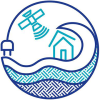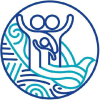Students and other stakeholders provided insights into the experience of students in the Pacific region. These insights covered students’ experiences in school and in their home environment in order to get a broad understanding of Pacific learners and the challenges they face. The primary focus was on students’ well-being and their learning difficulties.
Many students across the region are having negative well-being experiences. Student well-being findings varied by country, so local context is important to consider, but the regional findings show a need for improvement.
Only half the students in the region reported frequently having a good day, being cheerful, and looking forward to the next day. Further, one in five students reported frequent negative experiences, such as hunger, tiredness, feeling upset, or not having enough friends.
Whilst some students regularly have positive well-being experiences, these findings reveal that a substantial number have regular negative experiences. In short, the regional well-being findings show a clear need to act for improved student well-being and should be a key future research focus for regional and national stakeholders.
Many students are experiencing behavioural and cognitive challenges that may significantly affect their learning. Of all the learning difficulties that were surveyed, the most common reported by students were difficulties with learning or remembering, controlling their behaviour, and concentrating and focusing their attention (about 20% of students).
Similarly, the most common difficulties that teachers observed in their students were the same behavioural issues, difficulty focusing attention and concentrating, and a lack of basic knowledge and skills (about 30% of students).
It is important to understand what in the students’ contexts is associated with these difficulties and whether the experiences of this cohort of students are unique or influenced by any factors. Comparing these results with international benchmarks may also provide insights.








